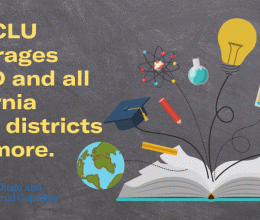WASHINGTON – The Department of Education and Department of Justice today released federal guidance to assist schools in administering discipline in a nondiscriminatory way and to provide alternatives to overly punitive school discipline practices.
In the guidance, the agencies have stated what we have known to be true for a long time: race discrimination in school discipline is a real problem. Students of color are punished more frequently and more harshly for the same infractions. Data from the 2011-2012 Civil Rights Data Collection provide a national snapshot of the reach of punitive school discipline policies. For example, Black students make up 44 percent of students suspended more than once and 36 percent of students expelled, though they represent only 15 percent of students.
"With the rise of law enforcement in our schools, the proliferation of zero-tolerance policies, and misuse of suspensions and expulsions, our nation’s school discipline policies are pushing children, most of whom are students of color and students with disabilities, out of school," said Deborah J. Vagins, ACLU senior legislative counsel. "Today, the federal government has issued groundbreaking guidance that will help all school districts end misguided, discriminatory school discipline policies. This guidance makes it crystal clear for schools what their obligations are under our civil rights laws and provides examples of best practices so that they can easily implement positive alternative practices. This is a victory for all who care about creating environments where students can thrive."
Though the guidance does not call for the elimination of law enforcement or school resource officers (SROs) in schools, it does provide important guiding principles for their proper role with respect to discipline. This includes improved training and a clear delineation of roles so that officers are not responsible for handling minor discipline.
The ACLU continues to advocate for additional measures to reduce over-reliance on punitive school discipline practices and to protect the civil rights of young people. This includes congressional passage of federal bills promoting positive behavior supports and ending corporal punishment, among others, and the administration collecting data on new categories of punitive school discipline that provide a more complete view of punishments administered to students, such as the total incidents of corporal punishment and reasons for referrals to law enforcement.
The development and release of the federal guidance is the result a collaborative project—the Supportive School Discipline Initiative—between the Department of Education and Department of Justice. It is also a result, in part, of the longstanding advocacy of the ACLU and other organizations committed to ending the school-to-prison pipeline.
The full guidance is available here:
http://www.ed.gov/school-discipline/
Read our ACLU attorney's blog post on Huffington Post.





